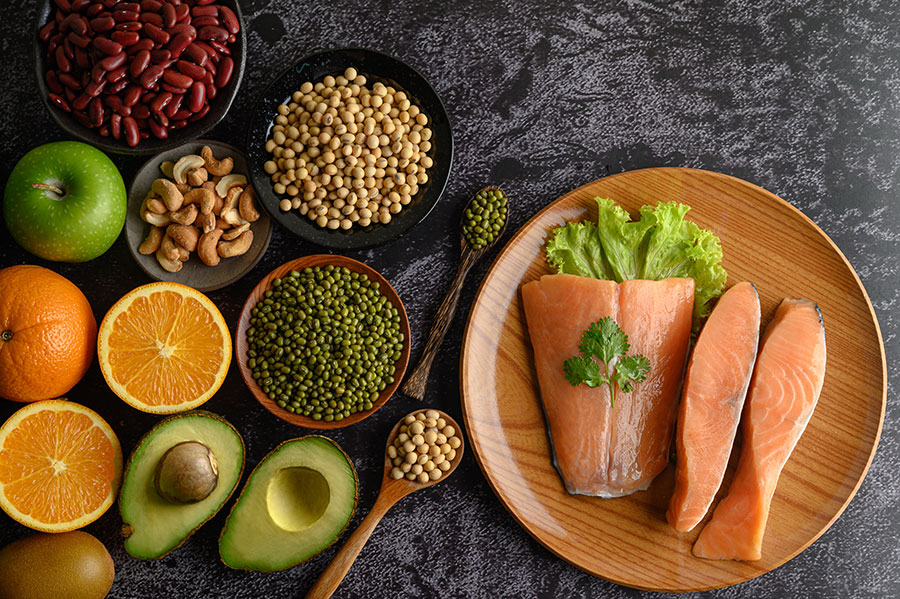
The weight loss industry is a multi-billion-dollar sector, bombarding consumers with an array of products and solutions promising quick and effortless results. Despite the alluring advertisements and celebrity endorsements, many of these claims are misleading or outright false. Effective weight loss and healthy nutrition are rooted in time-tested principles rather than gimmicks. Here, we debunk some of the most common myths about weight loss and nutrition, shedding light on what truly works for achieving and maintaining a healthy weight.
Myth 1: Rapid Weight Loss is Sustainable
The Reality: Slow and Steady Wins the Race
Rapid weight loss diets and products are tempting, often promising significant results in a short period. However, such rapid changes are rarely sustainable. When you lose weight quickly, it’s often a result of losing water weight or lean muscle mass rather than fat. This can lead to nutritional deficiencies and a slower metabolism, making it harder to maintain weight loss.
Sustainable weight loss typically occurs at a rate of 1-2 pounds per week. This steady pace allows your body to adjust and maintain muscle mass while losing fat. It also promotes lasting lifestyle changes rather than quick fixes.
Myth 2: Carbs are the Enemy
The Reality: Not All Carbs are Created Equal
Carbohydrates have received a bad reputation, with many popular diets advocating for their severe restriction or elimination. However, not all carbs are harmful. Carbohydrates are a primary energy source, and complex carbs, such as those found in whole grains, fruits, and vegetables, provide essential nutrients and fiber.
Refined carbs, like those in sugary snacks and white bread, should be limited as they can spike blood sugar levels and lead to weight gain. The key is to focus on whole, nutrient-dense carbohydrate sources rather than eliminating this macronutrient entirely.

Myth 3: Fat-Free Foods are Healthier
The Reality: Healthy Fats are Essential
The fat-free craze led many to believe that all fats are bad. Consequently, the market was flooded with fat-free products, often laden with added sugars to improve taste. This shift has contributed to increased sugar consumption and related health issues.
Healthy fats, such as those found in avocados, nuts, seeds, and olive oil, are vital for brain function, hormone production, and overall health. They also help keep you full and satisfied, which can prevent overeating. Rather than avoiding fats, focus on incorporating healthy fats into your diet.
Myth 4: Supplements Can Replace a Balanced Diet
The Reality: Whole Foods are Irreplaceable
The supplement industry is booming, with countless products claiming to aid in weight loss and provide essential nutrients. While certain supplements can be beneficial in addressing specific deficiencies, they cannot replace a balanced, nutrient-rich diet.
Whole foods offer a complex matrix of nutrients, fiber, and antioxidants that supplements cannot replicate. Eating a varied diet rich in vegetables, fruits, whole grains, lean proteins, and healthy fats is the most effective way to obtain the nutrients your body needs.
Myth 5: Skipping Meals Helps You Lose Weight
The Reality: Regular, Balanced Meals are Key
Skipping meals, particularly breakfast, is a common weight loss strategy. However, this approach can backfire by slowing down your metabolism and increasing hunger, leading to overeating later in the day.
Eating regular, balanced meals helps maintain energy levels and supports metabolic function. Focus on portion control and the quality of your food rather than skipping meals. Incorporating healthy snacks between meals can also prevent excessive hunger and improve overall nutrient intake.

Myth 6: You Need to Exercise Intensely to Lose Weight
The Reality: Consistency is More Important
High-intensity workouts are often touted as the best way to burn calories and lose weight quickly. While these workouts can be effective, they are not the only path to weight loss. Consistency and sustainability are more important than intensity.
Incorporating moderate physical activity, such as walking, swimming, or cycling, can be equally effective when done regularly. The key is to find activities you enjoy and can maintain long-term. Consistent exercise, combined with a healthy diet, is the most effective strategy for weight loss and overall health.
Myth 7: Detox Diets and Cleanses Promote Weight Loss
The Reality: Your Body is Naturally Equipped to Detox
Detox diets and cleanses are marketed as ways to rid your body of toxins and jumpstart weight loss. However, your liver, kidneys, and digestive system are naturally equipped to detoxify your body.
These diets often lead to short-term weight loss due to calorie restriction, but they are not sustainable and can lead to nutrient deficiencies. Instead of relying on detox diets, focus on eating a balanced diet rich in fruits, vegetables, and whole grains, which support your body’s natural detoxification processes.
Myth 8: You Can Target Fat Loss in Specific Areas
The Reality: Spot Reduction is a Myth
Many products and exercises claim to target fat loss in specific areas, such as the abdomen or thighs. However, spot reduction is a myth. When you lose weight, it occurs uniformly throughout your body based on genetics and overall body composition.
To reduce fat in specific areas, focus on overall weight loss through a combination of a healthy diet, regular exercise, and strength training. Building muscle in targeted areas can enhance muscle tone and definition, but it won’t specifically burn fat in those regions.
Myth 9: Eating Late at Night Leads to Weight Gain
The Reality: Total Caloric Intake Matters More
The belief that eating late at night leads to weight gain is widespread. However, weight gain is primarily influenced by the total number of calories consumed versus calories burned, not the timing of meals.
While late-night snacking can lead to overeating and poor food choices, eating a balanced meal or healthy snack in the evening is not inherently harmful. Focus on maintaining a healthy overall diet and staying within your daily caloric needs, regardless of meal timing.

Myth 10: Weight Loss is All About Willpower
The Reality: Environment and Habits Play Major Roles
While willpower is important, weight loss is influenced by a complex interplay of factors, including environment, habits, genetics, and psychological factors. Relying solely on willpower can lead to frustration and failure.
Creating a supportive environment and developing healthy habits are crucial for long-term success. This includes planning meals, managing stress, getting enough sleep, and seeking social support. Recognizing and addressing emotional and psychological factors related to eating can also enhance your weight loss journey.
Conclusion
The weight loss and nutrition landscape is rife with myths and misconceptions. By debunking these common myths, we can focus on strategies that truly work for achieving and maintaining a healthy weight. Sustainable weight loss requires a balanced diet, regular physical activity, and the development of healthy habits. Beware of quick fixes and too-good-to-be-true claims. Instead, embrace the time-tested principles of proper motivation, controlled food intake, and consistent calorie burning for safe and effective weight management.

0 Comments